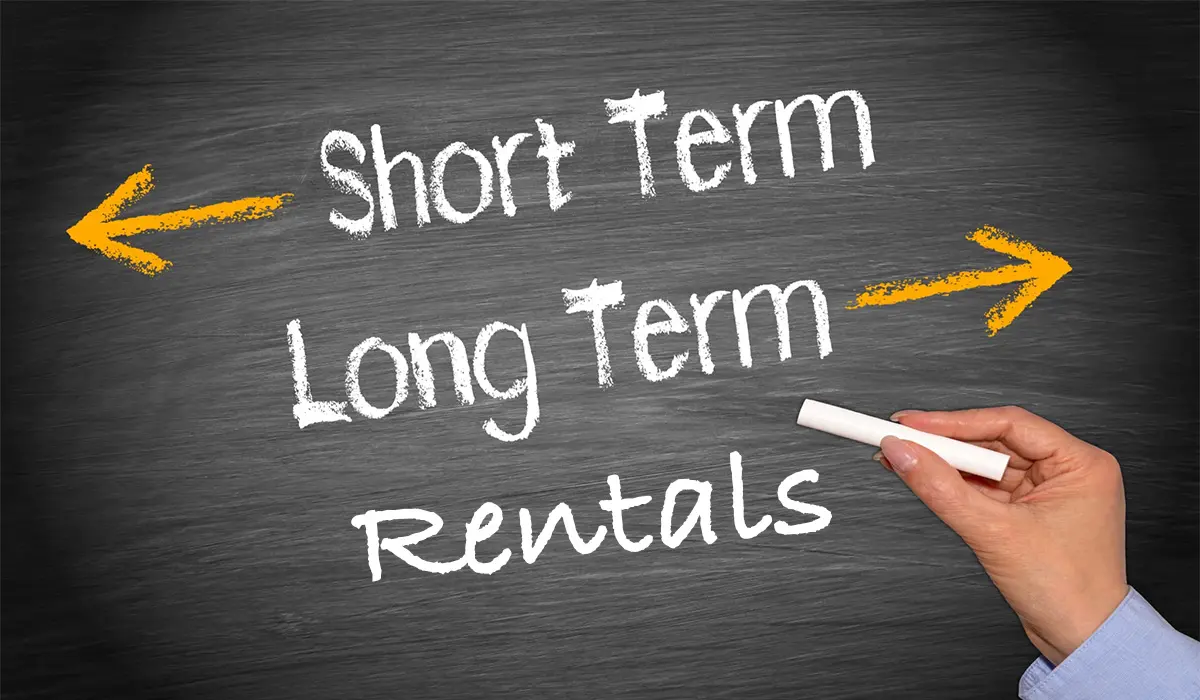When it comes to renting a home, two common options come to mind: short-term rentals and long-term rentals. Both have their own set of advantages and disadvantages, which can make it challenging to decide which one suits your needs best.

On one hand, short-term rentals have gained immense popularity in recent years, thanks to the rise of online platforms like Airbnb and VRBO. These platforms allow homeowners to rent out their properties to travelers and tourists, often at a higher nightly rate than what they would get from a traditional long-term rental.
One of the biggest benefits of short-term rentals is the flexibility they offer. Homeowners can rent out their properties for a few nights or a few weeks, depending on their needs and schedule. This can be especially useful for people who only need a place to stay for a short period of time, such as business travelers or families on vacation.
Another advantage of short-term rentals is the potential for higher earnings. Since homeowners can charge higher nightly rates, they can earn more money from renting out their properties in the short term than they would from a traditional long-term rental. This can be especially beneficial for people who own properties in high-demand areas, such as major cities or tourist hotspots.
However, short-term rentals also come with some significant drawbacks. For one, they can be a lot of work to manage. Homeowners need to constantly clean and prepare their properties for new guests, which can be time-consuming and exhausting. Additionally, short-term rentals often come with a higher risk of damage and disputes with guests.
On the other hand, long-term rentals offer a more traditional and stable approach to renting a home. These rentals typically involve a lease agreement of at least six months to a year or more, and offer a fixed monthly rent and a more predictable income stream for homeowners.
One of the biggest advantages of long-term rentals is the stability and security they provide. Homeowners can rely on a steady income stream each month and avoid the hassle and stress of constantly cleaning and preparing their properties for new guests. Additionally, long-term rentals often involve less wear and tear on the property, since tenants are more likely to take care of the property and report any issues to the homeowner.
However, long-term rentals also have some significant drawbacks. For one, they can tie up a homeowner’s property for an extended period of time, making it difficult to sell or rent out the property on short notice. Additionally, long-term rentals often involve a fixed monthly rent, which can limit a homeowner’s ability to raise the rent or adjust the terms of the lease agreement.
So, what’s the best option for you? Ultimately, the choice between a short-term rental and a long-term rental depends on your specific needs and circumstances. If you’re looking for flexibility and the potential for higher earnings, a short-term rental might be the way to go. But if you’re looking for stability and security, a long-term rental might be a better fit.
Here are some key questions to consider when deciding between a short-term rental and a long-term rental:
- How often do you want to rent out your property?
- Are you looking for a flexible or stable income stream?
- How much time and effort are you willing to put into managing your rental property?
- What are your goals and priorities for renting out your property?
By considering these questions and weighing the pros and cons of each option, you can make an informed decision that meets your needs and helps you achieve your goals.
To illustrate the difference between short-term and long-term rentals, let’s consider an example. Let’s say you own a two-bedroom condo in a popular tourist area. You could rent it out to travelers on a short-term basis, earning $200 per night and potentially generating $6,000 per month. However, this would require a significant amount of time and effort to manage the property, and you would need to be prepared for the possibility of damage and disputes with guests.
On the other hand, you could rent out the property to a long-term tenant, earning $2,000 per month and generating a steady income stream. This would require less time and effort to manage the property, but you would need to be prepared to commit to a longer lease agreement and potentially sacrifice some flexibility.
Ultimately, the choice between a short-term rental and a long-term rental depends on your specific needs and priorities. By considering the pros and cons of each option and weighing the potential benefits and drawbacks, you can make an informed decision that works best for you.
In conclusion, short-term rentals and long-term rentals both have their own unique advantages and disadvantages. While short-term rentals offer flexibility and the potential for higher earnings, long-term rentals provide stability and security. By considering your specific needs and circumstances, you can choose the option that best meets your goals and priorities, and enjoy a successful and rewarding rental experience.
So, whether you’re a seasoned landlord or just starting out, consider these key differences between short-term and long-term rentals, and start renting out your property with confidence.





